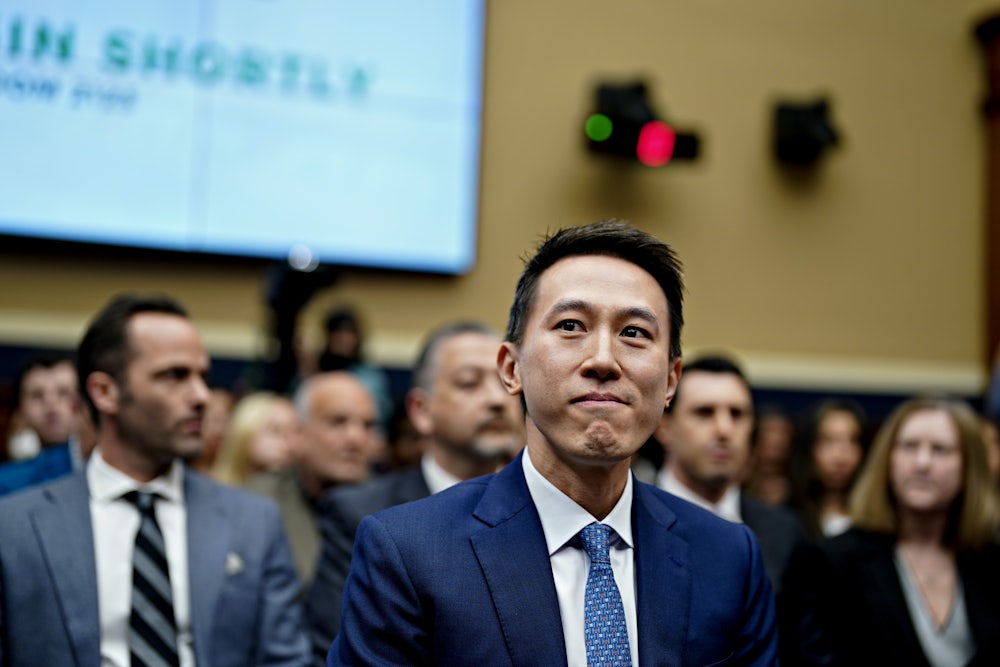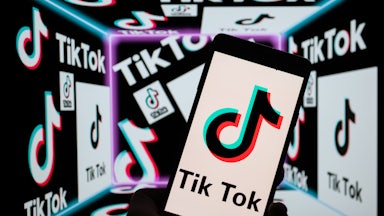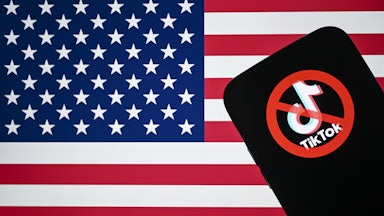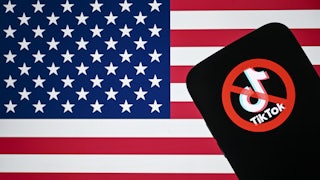The U.S. government wants to ban TikTok. President Joe Biden and his administration are pressuring lawmakers on Capitol Hill to give him the legislative authority to do so. But Congress hardly needs all the cajoling: It has already proposed three bills that would wipe out the popular Chinese-owned video app. Lawmakers have also had their opportunities to demonstrate their ferocity on this issue, with TikTok CEO Shou Chew taking the brunt of a hostile committee’s brickbats during a hearing earlier this month on the app’s alleged risks to privacy and national security.
“From the data it collects to the content it controls, TikTok is a grave threat of foreign influence in American life,” California Representative Cathy McMorris Rodgers, the House Energy and Commerce Committee chair, said in her opening statement. “It’s been said it is like allowing the Soviet Union the power to produce Saturday morning cartoons during the Cold War but much more powerful and much more dangerous. Banning your platform will address the immediate threats.”
Roughly two dozen states have already banned TikTok from state government devices. The federal government is reportedly planning similar measures for its own phones and computers. But removing it from Americans’ private devices will be a lot harder than it would appear, both from a statutory perspective and a constitutional one.
TikTok is currently among the most popular apps in the country, with more than 150 million monthly active users in the United States. But unlike similarly giant platforms like Facebook or Google, TikTok is not a product of Silicon Valley. The app, which allows users to view and share short video clips, was instead developed in the People’s Republic of China. ByteDance, TikTok’s Beijing-based owner, has insisted that it is a safe and responsible steward of any personal data collected by the app and announced plans to build a U.S.-based data center in Texas that would be inaccessible from outside the country.
Top government officials, by comparison, have sharply criticized the app for collecting a wide range of data from users’ phones. FBI Director Chris Wray warned in December that TikTok could manipulate its recommended videos feed—the primary channel for users to view new videos on the platform—for influence operations targeting U.S. citizens. Other officials have raised espionage concerns. Deputy Attorney General Lisa Monaco suggested in February that the Chinese government could use it as a means to illicitly obtain Americans’ private data, citing “the perils of Chinese companies being subject to Chinese national security laws.”
In the fall of 2020, the Trump administration sought to ban TikTok by invoking the International Emergency Economic Powers Act, or IEEPA. The 1977 law allows the president to block certain types of foreign economic transactions in the event of a national emergency. In his executive order, Trump said he would impose a series of restrictions that effectively cut off TikTok from the U.S. market unless ByteDance sold it to an American company within 45 days.
“TikTok automatically captures vast swaths of information from its users, including Internet and other network activity information such as location data and browsing and search histories,” the Trump administration claimed in the executive order. “This data collection threatens to allow the Chinese Communist Party access to Americans’ personal and proprietary information—potentially allowing China to track the locations of Federal employees and contractors, build dossiers of personal information for blackmail, and conduct corporate espionage.”
TikTok immediately sued the federal government to block the order from taking effect. It framed its arguments around an exception in the IEEPA known as the Berman Amendment. That amendment, named after the California representative who drafted it, prohibits the president from using the IEEPA’s powers to block the import or export of “publications, films, posters, phonograph records, photographs, microfilms, microfiche, tapes, or other informational materials.” Its intended purpose was to ensure that IEEPA restrictions wouldn’t affect press freedom, scholarly exchanges, or other types of First Amendment activities.
Judge Carl Nichols ruled in favor of TikTok in December 2020, concluding that the ban would run afoul of the Berman Amendment’s restrictions. “Those intended objects include stopping the exportation of data (which the government itself defines as ‘text, images, video, and audio’) to China and stopping the importation of propaganda into the United States,” he wrote in a 35-page opinion. “As those regulatory objects are ‘informational materials’—pictures, art, and films are included in the statutory definition itself—the Secretary’s prohibitions are efforts to control, through indirect (or mediate) means, the flow of information materials.” He also ruled that, contrary to the Trump administration’s assertions, Congress had not created a cyber-espionage exception to the amendment.
To overcome the Berman Amendment, lawmakers have introduced multiple bills in Congress to give the Biden administration the power to remove TikTok from the U.S. market. The administration’s preferred bill is the bipartisan RESTRICT Act, drafted by Senators Jim Thune and Mark Warner. It takes the broadest approach by empowering the Department of Commerce to review a wide variety of foreign technology and telecommunications companies for potential national security threats.
While the drafters of the bill mentioned TikTok as a potential target for scrutiny, it could also apply to companies like Chinese telecom giant Huawei and Russian cybersecurity company Kaspersky. Two other bills, the DATA Act and the ANTI-SOCIAL CCP Act, are more narrowly tailored to stop TikTok. (I will not waste your time with what any of these acronyms actually mean.) The DATA Act, which came first and received broad support from House Republicans, would give the executive branch new powers to ban “any transaction” with anyone that might transfer personal information to any entity that is at least partially owned by the Chinese government, operates under Chinese jurisdiction, or is “subject to the influence of China.”
The breadth of its language could effectively freeze any Chinese-based digital company out of the American market—and with it, a large portion of the modern internet. That scope has also raised First Amendment concerns from some quarters. In a letter to lawmakers in February, the American Civil Liberties Union urged a “no” vote on the bill, citing its vague language and the potential chilling effects on free speech for Americans.
“Unfortunately, it would be impossible for the average person to know what the term ‘subject to the influence of China’ means, and the term is not defined in the legislation,” the ACLU explained. “Would an entity be under the influence of China if the CEO’s sister had moved there, or married a Chinese person? Would an entity be under the influence of China if the CEO regularly travels there for leisure?” It also noted that the speculative language about whether someone “may” transfer personal data, as well as what counts as personal data, could cover innocuous behavior, like “sharing a video where a student explains their sadness at being the victim of bullying, or one where someone discusses their battle with an autoimmune disease,” the group explained.
The Supreme Court has had few opportunities to weigh in on similar laws in the last few decades. But the justices have generally held that access to the internet and even to specific types of websites is an important First Amendment concern. In the 2017 case Packingham v. North Carolina, the justices unanimously struck down a state law that prohibited registered sex offenders, the least defensible of defendants, from using websites where minor children might also be able to create accounts. The court held that the law in question was not narrowly tailored enough to justify the free speech infringements.
“This case is one of the first this Court has taken to address the relationship between the First Amendment and the modern Internet,” Justice Anthony Kennedy wrote for the court. “As a result, the Court must exercise extreme caution before suggesting that the First Amendment provides scant protection for access to vast networks in that medium.” While Justice Samuel Alito distanced himself from some of Kennedy’s more freewheeling language about technology, he still concluded that the North Carolina law was overbroad in theoretically preventing access to websites like Amazon and WebMD without appreciably improving child safety.
The courts have typically given Congress and the presidency more leeway when it comes to national security claims, but even then, they have drawn limits on First Amendment grounds. Jameel Jaffer, the executive director of the Knight First Amendment Institute at Columbia University, pointed to mid-twentieth-century rulings on the right to obtain “information and ideas” from other countries. “In one of those cases, Lamont v. Postmaster General, the court invalidated a federal law that barred Americans from receiving ‘communist political propaganda’ from foreign countries unless they specifically asked the Postal Service to deliver it,” he noted in a New York Times op-ed. “The court held that the law was an impermissible attempt ‘to control the flow of ideas to the public.’”
In order to defend a TikTok ban, the Biden administration will have to generally persuade the courts that its restrictions are targeting a legitimate problem and go no further than what is necessary to stop it. The courts may well ultimately conclude that the alleged risks posed by TikTok to ordinary Americans outweigh any potential free speech violations that a ban would create. But that will be a hefty challenge to overcome under existing First Amendment precedents that tend to err on the side of free speech—especially if Congress sends Biden a bill that is not carefully drafted with those concerns in mind.










